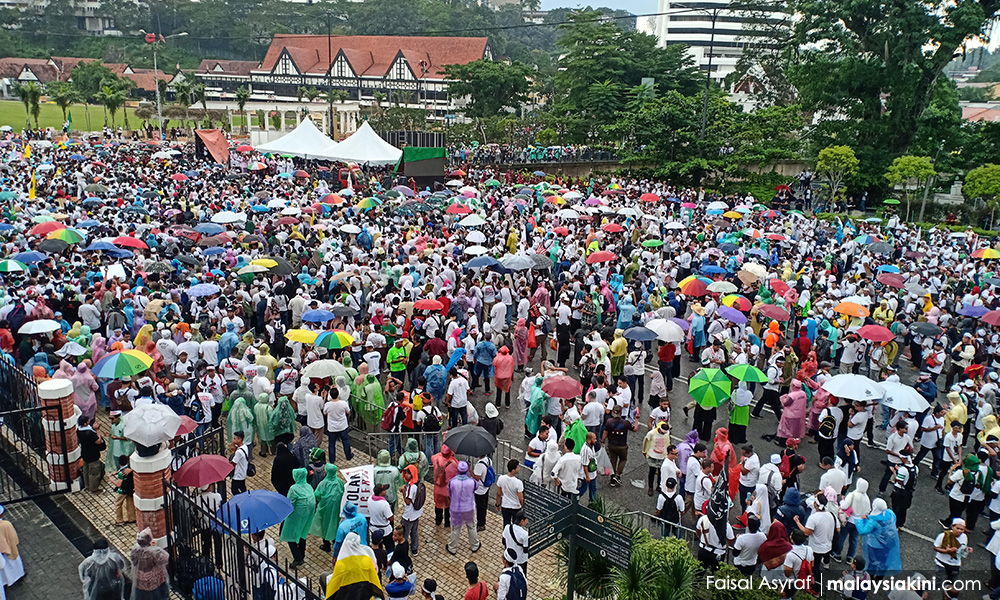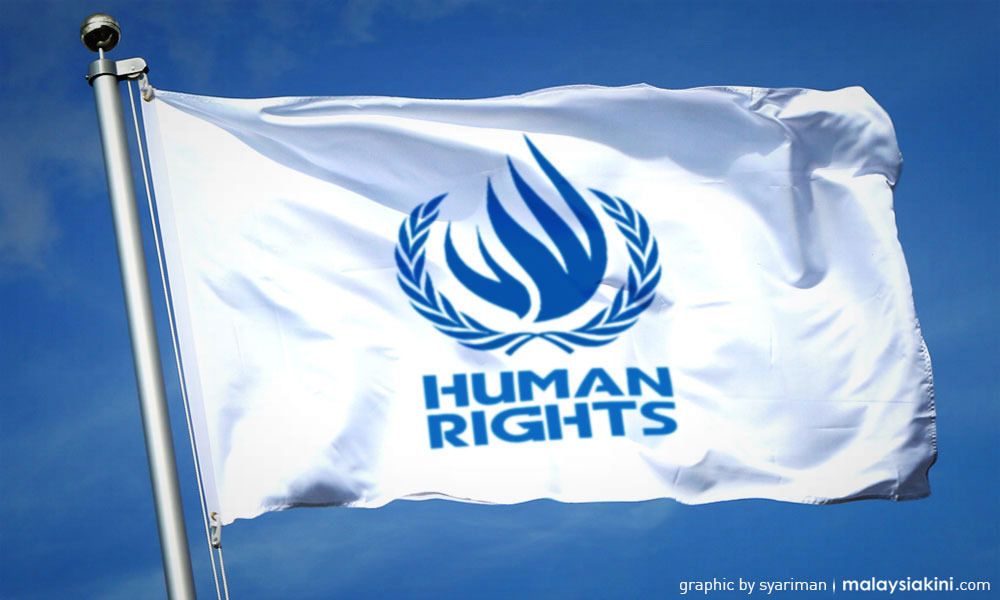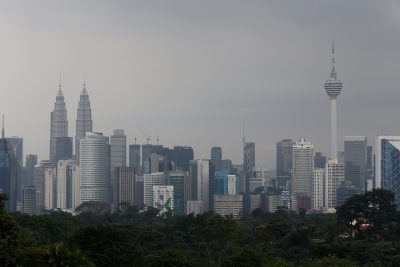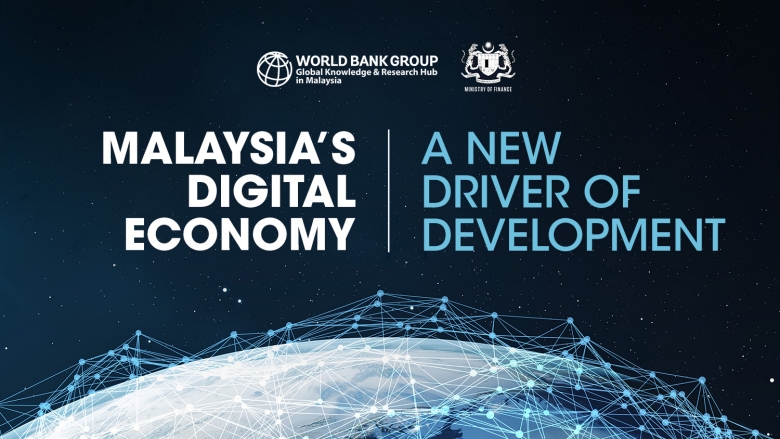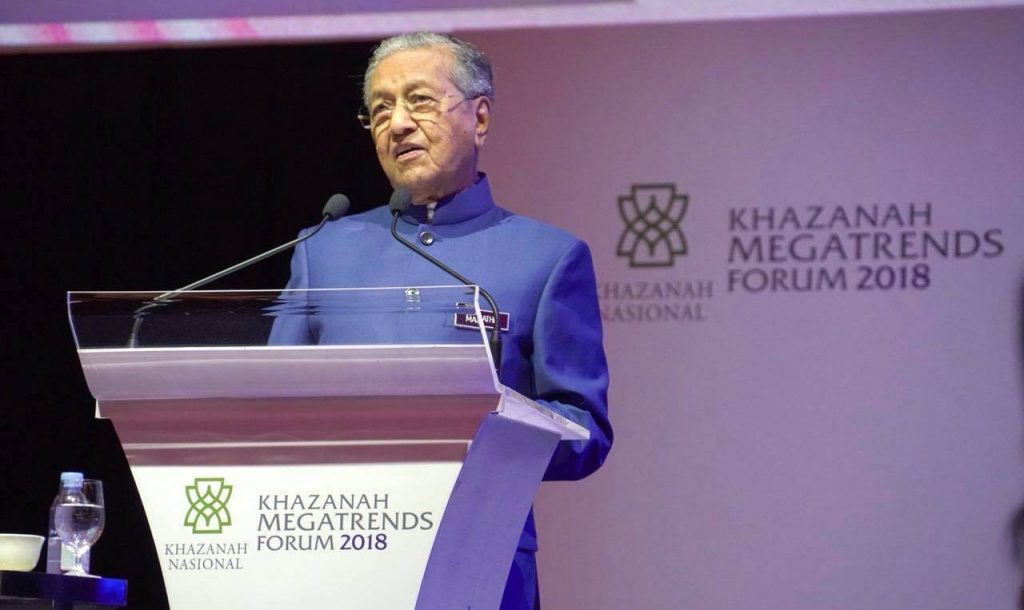When Pakatan Harapan unexpectedly secured power after Malaysia’s 14th General Elections (GE14) in May 2018, voters expected the coalition and Prime Minister Mahathir Mohamad to dismantle an extremely well-entrenched government–business institutional framework that had contributed to extensive clientelism, collusion, nepotism and embezzlement. After all, the institutionalisation of more transparent and accountable governance was a Pakatan campaign pledge.
However, barely nine months after taking control of government, Pakatan appears to be re-instituting the practice of selective patronage in the conduct of politics and through the implementation of public policies. In this inter-connected domain of public policies and selective patronage, government-linked companies (GLCs) will play a key role.
The core institutions employed by the Barisan Nasional coalition and the hegemonic party at its helm, the United Malays National Organisation (UMNO), that allowed for extensive profligacy are what are collectively known as GLCs. These GLCs are, in fact, a complex ensemble of statutory bodies, foundations, trust agencies, investment enterprises, a sovereign wealth fund, as well as companies, with representation in a wide array of industries. These institutions, controlled by the central and 13 state governments in the Malaysian federation, officially function primarily as “enablers” of domestic firms, to nurture a dynamic privately-owned enterprise base. But GLCs also constitute an estimated 42% of total market capitalisation of all publicly-listed firms. 67 quoted firms can be classified as GLCs, as the government, through various institutions, has a majority equity interest in them.
Federal ministries, under the ambit of cabinet ministers, also control a vast number of quoted and unlisted GLCs that do a variety of things, including promoting development of strategic economic sectors, redressing spatial inequities by developing rural areas and industries, and financing research and development to drive industrialisation. However, of the 25 ministries in the federal cabinet in 2017, before the fall of Barisan, three in particular, the Prime Minister’s Department, Ministry of Finance (MoF) and Ministry of Rural and Regional Development (MRRD), had control of a huge assortment of companies that were deployed to channel government-generated rents to UMNO members and well-connected businesspeople.
At the state level, different public institutions own GLCs through the states’ chief ministers, through holding firms known as Chief Minister Incorporated (CMI). CMIs establish companies to undertake activities in specific constituencies to mobilise electoral support. Party members are liberally appointed as directors of these GLCs, a major source of political financing as their stipends are used for political activities. Through the CMIs, what had emerged was the fusing of bureaucratic and party apparatuses, allowing politicians to selectively channel government resources in a manner that would help them consolidate or enhance their political base.
Another factor shaped modes of GLC development: a communal perspective to policy implementation, in keeping with the government’s longstanding affirmative action-based redistributive agenda to transfer corporate equity to the Bumiputera (Malays and other indigenous groups). However, rents meant for poor Bumiputera were hijacked by UMNO members. Eventually, these GLCs became sites of political struggles among elites attempting to consolidate power through patronage, a reason why critics have persistently excoriated them as inefficient and loss-making concerns.
Interestingly enough, this GLC framework became entrenched in the economy as well as the political system during Mahathir’s long 22-year reign as prime minister, from 1981 until 2003. Other key figures who shaped how this political–business nexus evolved while they served with Mahathir previously include then-Finance Minister Daim Zainuddin (1984–1990), now his economic advisor, and Anwar Ibrahim (1990–1997), then and now the designated prime minister-in-waiting. By the time of GE14, this GLC structure had become so huge—and so abused by Barisan—that Mahathir himself described it as a “monster”.
Despite Pakatan’s promise of a new approach to shaping Malaysia’s political economy, experience thus far suggests a surprising degree of continuity. Rather than give up an appealingly effective lever for consolidating power, Pakatan leaders seem inclined to borrow the same tools on which Barisan had so detrimentally relied.

Power struggles, persistent patronage
Soon after Pakatan formed the government, a disturbing series of events occurred. Shortly after the election, Prime Minister Mahathir inaugurated the Ministry of Economic Affairs (MEA), led by Azmin Ali, deputy president of Parti Keadilan Rakyat (PKR), Anwar’s party. Even before GE14, PKR was mired in a serious factional row, reportedly due to problems between Anwar and Azmin. Meanwhile, Mahathir is widely thought to be uncomfortable with transferring power to Anwar, who he had removed from public office in 1998.

A PKR insider insists that the party is split into two factions, one loyal to party supremo Anwar Ibrahim and the other to deputy president Mohamed Azmin Ali.
The newly-minted MEA took control of numerous GLCs from the Ministry of Finance (MoF), under the jurisdiction of Lim Guan Eng, leader of the Democratic Action Party (DAP). In this discreet shuffling of GLCs between ministries, Malaysia’s only sovereign wealth fund, Khazanah Nasional, was channelled from MoF to the Prime Minister’s Department, under Mahathir’s control. The government did not explain why these GLCs were shifted between ministries, but MoF’s enormous influence over the corporate sector has been significantly diminished. Under Barisan, the Prime Minister had also functioned as the Finance Minister, a practice Mahathir had started in 2001, but Pakatan, while in opposition, had pledged to ensure the same politician would not hold both portfolios.
Even though Khazanah was under the Prime Minister’s Department, Mahathir appointed himself as its chairman, which is, by convention, the practice. The convention also is that the Finance Minister serve on Khazanah’s board of directors. Instead, Minister of Economic Affairs Azmin was given this appointment. The appointment of Mahathir and Azmin as Khazanah board members was contentious as Pakatan had pledged in its election manifesto that politicians would not be appointed as directors of government enterprises.

Next, in September 2018, Azmin’s ministry convened a Congress on the Future of Bumiputeras & the Nation. Mahathir stressed at this congress the need to reinstitute the practice of selective patronage, targeting Bumiputera, a plan his economic advisor, Daim, endorsed. The following month, when Pakatan, through the MEA, released its first public policy document, the Mid-Term Review of the 11th Malaysia Plan, it emphasised the Bumiputera policy as being imperative. In the past, GLCs have been central to government efforts to advance Bumiputera interests.
Meanwhile, numerous ministers began actively calling for the divestment of GLCs, an issue also in the 2019 budget. Subsequently, when Khazanah began reducing its equity holdings, including in CIMB, Malaysia’s second largest bank, rather than seeming simply a step toward the larger goal of scaling back government ownership, this divestment raised the question whether it marked the commencement of a transfer of control of key enterprises to well-connected business people, even proxies of politicians, a common practice by UMNO in the 1990s. In fact, in ensuing debates about such divestments, the question was raised whether such divestments were an attempt to create a new influential economic elite, even oligarchs, who could check politicians in power in the event of a leadership change.
Then, another contentious issue occurred. Minister of Rural & Regional Development Rina Harun, of Mahathir’s Parti Pribumi Bersatu Malaysia (Bersatu), appointed politicians from her party to the boards of directors of GLCs under her control. Under UMNO, this ministry had persistently been embroiled in allegations of corruption, undermining the activities of its GLCs that had been created to redress spatial inequalities and reduce poverty. The practice of patronage through GLCs to draw electoral support was rampant under this ministry as its enterprises have an enormous presence in states with a Bumiputera-majority population. So important is this ministry, in terms of mobilising electoral support, that it was always placed under the control of a senior UMNO leader. Hence, the minister’s directorial appointments suggested a worrying trend of continuity of irresponsible practices of the old regime.
In December 2018, Bersatu leaders openly declared their intent to persist with the practice of selectively-targeted patronage. At its first convention after securing power, when its president, Muhyiddin Yassin, declared that “Bersatu should not be apologetic to champion the Bumiputera Agenda”, his statement was enthusiastically supported by members, suggesting an element of opportunism, even self-interested rent-seeking, in the party. UMNO leaders had made similar arguments in the past to justify state intervention, including through GLCs, a process that they abused to transfer government-generated rents to party members, to the detriment of poor Bumiputera. These trends suggested that Bersatu’s primary concern was its immediate need to consolidate power, not instituting appropriate long-term socioeconomic reforms, which might do less to muster support.
The problem of instituting real change
All told, then, these specific, sometimes discreet, steps since GE14 have called into question the extent of political economic reforms expected of Pakatan, based on its own manifesto. Moreover, under Pakatan, by its own admission, the volume of state intervention in the economy will still be substantial. Industrial development will be fostered through GLCs, as will attempts to nurture dynamic domestic Bumiputera-owned enterprises. Worryingly, what is absent is a coherently-structured industrial plan to cultivate entrepreneurial private firms. There is similarly no roadmap to reform these GLCs, or even to get them to target specific core industries requiring heavy capital investments and extensive research and development funding to rapidly industrialise the economy. Since politicians will control most of these GLCs as directors, they will determine the recipients of rents distributed to nurture domestic enterprises.
The current state of play raises an important question about an interesting phenomenon: what happens, in terms of dismantling rent-seeking and patronage and instituting reforms to curb corruption, when a new regime comprises politicians who see this framework as a mechanism to consolidate power? A link between two core issues remains in place after regime change: elite domination and the continued practice of selective patronage, legitimised by advocating race-based policies that are to be implemented through GLCs. Under UMNO, elite domination was obvious, with Barisan component members subservient to then-Prime Minister Najib. In Pakatan, a multi-party coalition, Prime Minister Mahathir and Daim appear to have disproportionate influence when it comes to decision-making on core issues, though the parameters of their power remain unclear.
Meanwhile, elite domination of the economy at the state level varies as several different parties are in power. State governments are controlled by UMNO, Bersatu, PKR, DAP, Parti Warisan Sabah, Parti Islam Se-Malaysia (PAS) and Parti Pesaka Bumiputera Bersatu (PBB). The latter two parties have long governed Kelantan and Sarawak respectively, while Bersatu and Warisan are new parties run by UMNO factions, though ostensibly with a reformist agenda. The governance dynamics of these parties in these state governments will differ, specifically in terms of how they employ GLCs, further indicating the ubiquity of these enterprises in the economy. These GLCs have persistently been used to distribute different types of rents such as financial aid, contracts, permits, licences, etc., to party members as well as others in the electorate in key constituencies. Even with regime change, the presence of covert networks of power created through GLCs in these states is unlikely to be reformed, thus contributing to continued serious wastage of scarce resources.
There is plainly no clear method to the madness of how the new federal or state governments employ GLCs. Different sets of political and business elites operate at the national and state levels. In fact, before GE14, business elites were known to be creating ties with politicians in both UMNO and Pakatan parties, specifically PKR and DAP. Meanwhile, in Sarawak, wealthy businessmen had long since begun entering politics, even getting elected as parliamentarians, thus giving them access to federal government leaders. This diversity in political–business ties, where government institutions figure, is an indication of how complex the GLC problem has become. However, GLCs remain an opaque form of state intervention in the economy. And, since there is little public knowledge of GLCs, the opacity of these enterprises has allowed for their abuse by politicians.

Fragile state and political economic outcomes
Since Pakatan is a coalition of parties led by politicians who coalesced only because they had a common agenda—the removal of Najib from power—what prevails in the post-GE14 period can be described as a “fragile state”. This fragility is also because of the uneasy relationship between Mahathir, who leads the second-smallest party in Pakatan, and his long-time-nemesis-now-political-ally Anwar, who leads the party with the highest number of parliamentary seats. PKR, however, is ridden with serious factionalism, including an uneasy truce between Anwar and Azmin, who apparently is closely associated with Mahathir.
What is emerging is new forms of power relations through the unhealthy circulation of political elites from the old regime into Pakatan, as well as alliances between leaders from different parties in this coalition. UMNO parliamentarians are lining up to join Bersatu, a quick route back to power for them after their unexpected ouster. By co-opting them, Mahathir’s new party can swiftly fortify its extremely weak base in Bumiputera-dominant states. Bersatu’s co-optation of discredited UMNO members is, however, seriously undermining support for Pakatan among the urban middle class, as well as Mahathir’s credibility. In fact, there has been recent talk in the public domain that a no-confidence motion against Mahathir as Prime Minister may be tabled in the March sitting of parliament, led apparently by leaders within Pakatan. Because of this complex situation of political in-fighting, there is much fear that politicians in power may move to create, through the divestment of GLCs, powerful
Since a structural framework that allowed politicians to exploit institutions in various ways to serve vested political and economic interests remains in place, a key question has emerged. What are the possible political outcomes to this situation, in which contending elites in the new regime struggle to consolidate their respective power bases? Political outcomes can involve protecting the property rights—through ongoing and much-needed institutional reforms—of business elites who acquire privatised GLCs, thereby preventing expropriation of these companies by the government in the event of a change of premiership. Political outcomes can also entail endorsing entitlements that give one large segment of society privileged access to government-generated rents, as is already actively occurring. Inevitably, a related issue is the necessity of targeted race-based policies. These policies serve as a mechanism to retain patronage-based networks and consolidate power bases. This approach can, however, stymie domestic investments by non-Bumiputera, a serious and persistent problem during Barisan’s rule.
Ironically, it was these forms of unproductive government–business networks that Pakatan had promised to dismantle when in opposition, in order to forge a “New Malaysia”. This New Malaysia was supposed to be devoid of race-based political discourses and policies, with the GLCs deployed to promote equitable development and redress social inequities. The GLCs were not to be led by politicians who have no clue how to utilise them productively in the economy. These pledges have been broken. Evidently, consolidating power is more important for Malaysia’s new political elites than restructuring an economy in dire need of reform.
itutions, has a majority equity interest in them.
The core institutions employed by the Barisan Nasional coalition and the hegemonic party at its helm, the United Malays National Organisation (UMNO), that allowed for extensive profligacy are what are collectively known as GLCs. These GLCs are, in fact, a complex ensemble of statutory bodies, foundations, trust agencies, investment enterprises, a sovereign wealth fund, as well as companies, with representation in a wide array of industries. These institutions, controlled by the central and 13 state governments in the Malaysian federation, officially function primarily as “enablers” of domestic firms, to nurture a dynamic privately-owned enterprise base. But GLCs also constitute an estimated 42% of total market capitalisation of all publicly-listed firms. 67 quoted firms can be classified as GLCs, as the government, through various institutions, has a majority equity interest in them.
At the state level, different public institutions own GLCs through the states’ chief ministers, through holding firms known as Chief Minister Incorporated (CMI). CMIs establish companies to undertake activities in specific constituencies to mobilise electoral support. Party members are liberally appointed as directors of these GLCs, a major source of political financing as their stipends are used for political activities. Through the CMIs, what had emerged was the fusing of bureaucratic and party apparatuses, allowing politicians to selectively channel government resources in a manner that would help them consolidate or enhance their political base.
Another factor shaped modes of GLC development: a communal perspective to policy implementation, in keeping with the government’s longstanding affirmative action-based redistributive agenda to transfer corporate equity to the Bumiputera (Malays and other indigenous groups). However, rents meant for poor Bumiputera were hijacked by UMNO members. Eventually, these GLCs became sites of political struggles among elites attempting to consolidate power through patronage, a reason why critics have persistently excoriated them as inefficient and loss-making concerns.
Interestingly enough, this GLC framework became entrenched in the economy as well as the political system during Mahathir’s long 22-year reign as prime minister, from 1981 until 2003. Other key figures who shaped how this political–business nexus evolved while they served with Mahathir previously include then-Finance Minister Daim Zainuddin (1984–1990), now his economic advisor, and Anwar Ibrahim (1990–1997), then and now the designated prime minister-in-waiting. By the time of GE14, this GLC structure had become so huge—and so abused by Barisan—that Mahathir himself described it as a “monster”.
Despite Pakatan’s promise of a new approach to shaping Malaysia’s political economy, experience thus far suggests a surprising degree of continuity. Rather than give up an appealingly effective lever for consolidating power, Pakatan leaders seem inclined to borrow the same tools on which Barisan had so detrimentally relied.
Power struggles, persistent patronage
Soon after Pakatan formed the government, a disturbing series of events occurred. Shortly after the election, Prime Minister Mahathir inaugurated the Ministry of Economic Affairs (MEA), led by Azmin Ali, deputy president of Parti Keadilan Rakyat (PKR), Anwar’s party. Even before GE14, PKR was mired in a serious factional row, reportedly due to problems between Anwar and Azmin. Meanwhile, Mahathir is widely thought to be uncomfortable with transferring power to Anwar, who he had removed from public office in 1998.
The newly-minted MEA took control of numerous GLCs from the Ministry of Finance (MoF), under the jurisdiction of Lim Guan Eng, leader of the Democratic Action Party (DAP). In this discreet shuffling of GLCs between ministries, Malaysia’s only sovereign wealth fund, Khazanah Nasional, was channelled from MoF to the Prime Minister’s Department, under Mahathir’s control. The government did not explain why these GLCs were shifted between ministries, but MoF’s enormous influence over the corporate sector has been significantly diminished. Under Barisan, the Prime Minister had also functioned as the Finance Minister, a practice Mahathir had started in 2001, but Pakatan, while in opposition, had pledged to ensure the same politician would not hold both portfolios.
Even though Khazanah was under the Prime Minister’s Department, Mahathir appointed himself as its chairman, which is, by convention, the practice. The convention also is that the Finance Minister serve on Khazanah’s board of directors. Instead, Minister of Economic Affairs Azmin was given this appointment. The appointment of Mahathir and Azmin as Khazanah board members was contentious as Pakatan had pledged in its election manifesto that politicians would not be appointed as directors of government enterprises.
Next, in September 2018, Azmin’s ministry convened a Congress on the Future of Bumiputeras & the Nation. Mahathir stressed at this congress the need to reinstitute the practice of selective patronage, targeting Bumiputera, a plan his economic advisor, Daim, endorsed. The following month, when Pakatan, through the MEA, released its first public policy document, the Mid-Term Review of the 11th Malaysia Plan, it emphasised the Bumiputera policy as being imperative. In the past, GLCs have been central to government efforts to advance Bumiputera interests.
Meanwhile, numerous ministers began actively calling for the divestment of GLCs, an issue also in the 2019 budget. Subsequently, when Khazanah began reducing its equity holdings, including in CIMB, Malaysia’s second largest bank, rather than seeming simply a step toward the larger goal of scaling back government ownership, this divestment raised the question whether it marked the commencement of a transfer of control of key enterprises to well-connected business people, even proxies of politicians, a common practice by UMNO in the 1990s. In fact, in ensuing debates about such divestments, the question was raised whether such divestments were an attempt to create a new influential economic elite, even oligarchs, who could check politicians in power in the event of a leadership change.
Then, another contentious issue occurred. Minister of Rural & Regional Development Rina Harun, of Mahathir’s Parti Pribumi Bersatu Malaysia (Bersatu), appointed politicians from her party to the boards of directors of GLCs under her control. Under UMNO, this ministry had persistently been embroiled in allegations of corruption, undermining the activities of its GLCs that had been created to redress spatial inequalities and reduce poverty. The practice of patronage through GLCs to draw electoral support was rampant under this ministry as its enterprises have an enormous presence in states with a Bumiputera-majority population. So important is this ministry, in terms of mobilising electoral support, that it was always placed under the control of a senior UMNO leader. Hence, the minister’s directorial appointments suggested a worrying trend of continuity of irresponsible practices of the old regime.
In December 2018, Bersatu leaders openly declared their intent to persist with the practice of selectively-targeted patronage. At its first convention after securing power, when its president, Muhyiddin Yassin, declared that “Bersatu should not be apologetic to champion the Bumiputera Agenda”, his statement was enthusiastically supported by members, suggesting an element of opportunism, even self-interested rent-seeking, in the party. UMNO leaders had made similar arguments in the past to justify state intervention, including through GLCs, a process that they abused to transfer government-generated rents to party members, to the detriment of poor Bumiputera. These trends suggested that Bersatu’s primary concern was its immediate need to consolidate power, not instituting appropriate long-term socioeconomic reforms, which might do less to muster support.
The problem of instituting real change
All told, then, these specific, sometimes discreet, steps since GE14 have called into question the extent of political economic reforms expected of Pakatan, based on its own manifesto. Moreover, under Pakatan, by its own admission, the volume of state intervention in the economy will still be substantial. Industrial development will be fostered through GLCs, as will attempts to nurture dynamic domestic Bumiputera-owned enterprises. Worryingly, what is absent is a coherently-structured industrial plan to cultivate entrepreneurial private firms. There is similarly no roadmap to reform these GLCs, or even to get them to target specific core industries requiring heavy capital investments and extensive research and development funding to rapidly industrialise the economy. Since politicians will control most of these GLCs as directors, they will determine the recipients of rents distributed to nurture domestic enterprises.
The current state of play raises an important question about an interesting phenomenon: what happens, in terms of dismantling rent-seeking and patronage and instituting reforms to curb corruption, when a new regime comprises politicians who see this framework as a mechanism to consolidate power? A link between two core issues remains in place after regime change: elite domination and the continued practice of selective patronage, legitimised by advocating race-based policies that are to be implemented through GLCs. Under UMNO, elite domination was obvious, with Barisan component members subservient to then-Prime Minister Najib. In Pakatan, a multi-party coalition, Prime Minister Mahathir and Daim appear to have disproportionate influence when it comes to decision-making on core issues, though the parameters of their power remain unclear.
Meanwhile, elite domination of the economy at the state level varies as several different parties are in power. State governments are controlled by UMNO, Bersatu, PKR, DAP, Parti Warisan Sabah, Parti Islam Se-Malaysia (PAS) and Parti Pesaka Bumiputera Bersatu (PBB). The latter two parties have long governed Kelantan and Sarawak respectively, while Bersatu and Warisan are new parties run by UMNO factions, though ostensibly with a reformist agenda. The governance dynamics of these parties in these state governments will differ, specifically in terms of how they employ GLCs, further indicating the ubiquity of these enterprises in the economy. These GLCs have persistently been used to distribute different types of rents such as financial aid, contracts, permits, licences, etc., to party members as well as others in the electorate in key constituencies. Even with regime change, the presence of covert networks of power created through GLCs in these states is unlikely to be reformed, thus contributing to continued serious wastage of scarce resources.
There is plainly no clear method to the madness of how the new federal or state governments employ GLCs. Different sets of political and business elites operate at the national and state levels. In fact, before GE14, business elites were known to be creating ties with politicians in both UMNO and Pakatan parties, specifically PKR and DAP. Meanwhile, in Sarawak, wealthy businessmen had long since begun entering politics, even getting elected as parliamentarians, thus giving them access to federal government leaders. This diversity in political–business ties, where government institutions figure, is an indication of how complex the GLC problem has become. However, GLCs remain an opaque form of state intervention in the economy. And, since there is little public knowledge of GLCs, the opacity of these enterprises has allowed for their abuse by politicians.
Fragile state and political economic outcomes
Since Pakatan is a coalition of parties led by politicians who coalesced only because they had a common agenda—the removal of Najib from power—what prevails in the post-GE14 period can be described as a “fragile state”. This fragility is also because of the uneasy relationship between Mahathir, who leads the second-smallest party in Pakatan, and his long-time-nemesis-now-political-ally Anwar, who leads the party with the highest number of parliamentary seats. PKR, however, is ridden with serious factionalism, including an uneasy truce between Anwar and Azmin, who apparently is closely associated with Mahathir.
What is emerging is new forms of power relations through the unhealthy circulation of political elites from the old regime into Pakatan, as well as alliances between leaders from different parties in this coalition. UMNO parliamentarians are lining up to join Bersatu, a quick route back to power for them after their unexpected ouster. By co-opting them, Mahathir’s new party can swiftly fortify its extremely weak base in Bumiputera-dominant states. Bersatu’s co-optation of discredited UMNO members is, however, seriously undermining support for Pakatan among the urban middle class, as well as Mahathir’s credibility. In fact, there has been recent talk in the public domain that a no-confidence motion against Mahathir as Prime Minister may be tabled in the March sitting of parliament, led apparently by leaders within Pakatan. Because of this complex situation of political in-fighting, there is much fear that politicians in power may move to create, through the divestment of GLCs, powerful business elites or even oligarchs to check other political elites.
Since a structural framework that allowed politicians to exploit institutions in various ways to serve vested political and economic interests remains in place, a key question has emerged. What are the possible political outcomes to this situation, in which contending elites in the new regime struggle to consolidate their respective power bases? Political outcomes can involve protecting the property rights—through ongoing and much-needed institutional reforms—of business elites who acquire privatised GLCs, thereby preventing expropriation of these companies by the government in the event of a change of premiership. Political outcomes can also entail endorsing entitlements that give one large segment of society privileged access to government-generated rents, as is already actively occurring. Inevitably, a related issue is the necessity of targeted race-based policies. These policies serve as a mechanism to retain patronage-based networks and consolidate power bases. This approach can, however, stymie domestic investments by non-Bumiputera, a serious and persistent problem during Barisan’s rule.
Ironically, it was these forms of unproductive government–business networks that Pakatan had promised to dismantle when in opposition, in order to forge a “New Malaysia”. This New Malaysia was supposed to be devoid of race-based political discourses and policies, with the GLCs deployed to promote equitable development and redress social inequities. The GLCs were not to be led by politicians who have no clue how to utilise them productively in the economy. These pledges have been broken. Evidently, consolidating power is more important for Malaysia’s new political elites than restructuring an economy in dire need of reform.
